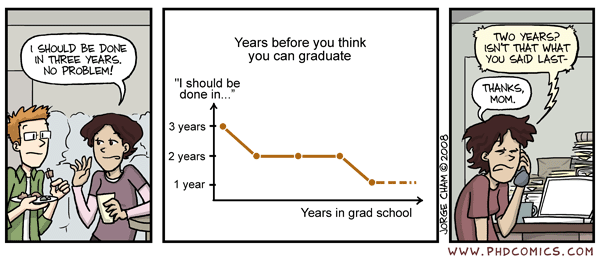Your Research. Your Life. Your Story.
A magnetic community of researchers bound by their stories
Every researcher has a story. What’s yours?
I completed my PhD very slowly - it was the effort of a tortoise

My colleague, PhD candidate and friend Lilia Mantai has recently submitted her PhD (on time) and received a Faculty Highly Commended award for her achievements as an HDR student. Last year, we gave a keynote at the Western Sydney University entitled: PhD Student: Doing, Being and Moving On. Some of this post is drawn from that, but I have been reflecting further on slow academia and PhD candidature for a paper we are co-authoring (with another colleague) on early career academics and PhD candidates’ perceptions of time.

“Piled Higher and Deeper” by Jorge Cham
I completed my PhD very slowly. Here is the short version of a long story – it reads like a series of dot points, but I will resist expanding on each point for now.
My PhD was poorly planned. I didn’t have a well-defined topic. I was still very much an undergraduate in my thinking and approach to research. (The longer version of this point has me travelling in India and finding out I was an accidental PhD student via postcard).
I worked four days a week in an area unrelated to my PhD. (My first jobs were in costumes and wardrobe at amusements parks. I also had a stint as a rides operator at Luna Park).
My first supervisor (who didn’t have a PhD) suggested reading in the library for a year. As I clarified my topic, I changed supervisor. My new supervisor honed my academic writing, but was experiencing a tumultuous time professionally and personally and was something of a force for chaos. (The longer version of this point has my supervisor banging the table and shouting ‘Lazy scholarship!’).
I became pregnant. Unlike my PhD, this was planned. Unfortunately, my baby hadn’t read the plan. My daughter was very ill. (There is a bit more of this story in a previous post). The University refused my request for parental leave so I took it without official approval.
Eighteen months later, I had a new – and fantastic – supervisor. The words flowed and the thesis formed a coherent whole. I submitted when my daughter was two, and graduated when she was three. I have written about my PhD experience with a colleague in a book chapter “What Feelings Didn’t I Experience” (this links to a preview, feel free to contact me via Researchgate or Twitter to request an author copy).
My PhD was the effort of a tortoise. But, though I didn’t realise it at the time, the fallow time proved valuable. If at all possible, try to find a way to build quiet times into your PhD journey.
The formidable thesiswhisper Inger Mewburn had a post on this topic back in 2011 (I warned you this blog would adopt slow reading strategies):
I am almost obsessed with Fast. I’m constantly after the next technique or process which will increase my output. This is because, much of the time, Fast is Good … But recently I’ve started to think about Slow and how it might apply to academic work, because there are aspects of it which just can’t be rushed … In a way, doing a thesis is like a long, slow conversation with these ideas and things … What if losing control is an essential part of writing a thesis? Realising you have lost control forces you to slow down. When you stop talking so much, you can listen better. Maybe then your thesis will tell you what it needs.
A recent Tomorrow’s Professor email (subscribe if you don’t already!) was The Slow Grad Student – Do Less and Be Mindful. The piece includes some great links so is worth reading in full. Here is a taster:
Here are four practices to help you slow down. These are micro-practices that can make a small, but noticeable, difference: 1) Do Less … 2) Make Space to Be, Rather Than Do … 3) Eschew Performing Busyness … 4) Cultivate Community.
I will follow up some of these links and strategies in future posts, but for now I would add: find ways to write differently.
Agnes Bosanquet (@AgnesBosanquet) is Associate Dean, Curriculum Quality Assurance in the Faculty of Human Sciences at Macquarie University, Sydney, Australia. This story was published on February 21, 2017, on her blog The Slow Academic (available here) and has been republished here with her permission.
Comments
You're looking to give wings to your academic career and publication journey. We like that!
Why don't we give you complete access! Create a free account and get unlimited access to all resources & a vibrant researcher community.

Your Research. Your Life. Your Story.
A magnetic community of researchers bound by their stories






